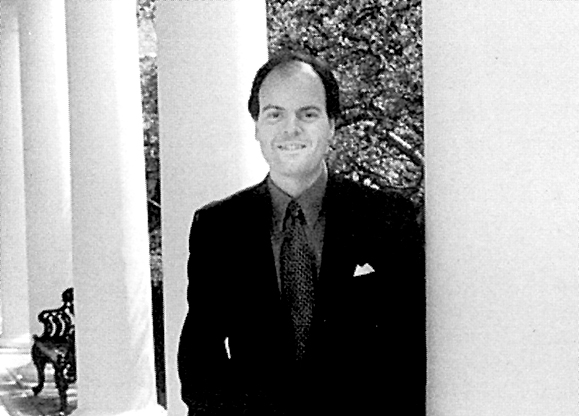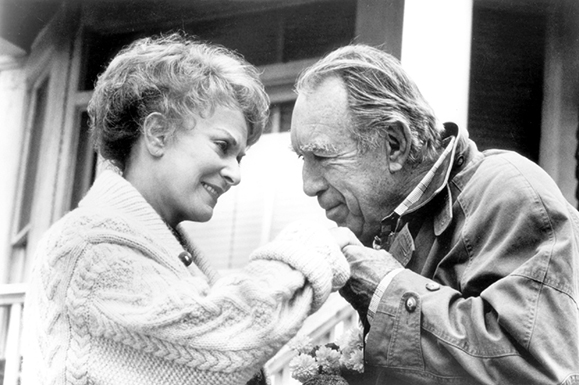John Joseph Moakley
Irish America lost a skilled and big-hearted leader with the death on May 28 of Massachusetts Congressman John Joseph Moakley, the South Boston Representative raised in a housing project who became one of the most influential leaders in Congress during his 15 terms there from 1973 to 2001.
In January of this year he was diagnosed with incurable leukemia – devastating news that he conveyed with characteristic humor. “The doctor said `Don’t buy any green bananas,'” he told C-SPAN’s Brian Lamb in a March interview.
Moakley, who was much-loved by his constituents – hundreds waited outside St. Brigid’s to hear the service – referred to himself as a “bread-and-butter Democrat” but the down-home term conveyed neither the scope of his politics nor his extraordinary skill in achieving what he wanted in Congress.
During his long career, he began the clean-up of Boston Harbor, took on the issue of homeless Vietnam War veterans and brought one of the biggest public works projects in U.S. history to Boston. He was also passionately involved in ending U.S. support for the military government of El Salvador.

Senator Edward Kennedy said in a Washington tribute to Moakley, “All of us who served with Joe admired his strength, his dedication to public service and his incredible touch that inspired the people he served so well and made them love him so deeply in return.
“The Irish poet could have been talking about Joe when he said there were no strangers, only, friends he hadn’t met.”
– Bobbi Murray
Anthony Quinn
Actor Anthony Quinn died on June 3 from heart failure at the age of 86. He was born in 1915 in Chihuaha, Mexico, the son of an Irish railroad worker and a Mexican mother who had been abandoned by her family. His parents met on a train of rebels headed for Durango. Quinn’s mother conceived him practically on the battlefield and was sent back to Chihuaha to give birth.
Quinn’s father returned from war and both parents worked on the railroads in Texas until he suffered an injury which forced the family into a life as nomadic farm workers. He later became a laborer at the new movie studios in California and died in a car accident. At ten years of age, Anthony took odd jobs to help support the family. Later, when his mother became involved with another man, he left home with his grandmother and sister, becoming their sole supporter.
There was luck in Quinn’s life too. He won an architectural contest, and earned a viewing and critique by Frank Lloyd Wright. Wright also offered the young man some personal advice. At his suggestion Quinn took speech lessons which led to his first acting role.
His movie career grew slowly but impressively. With directors taking notice of his ethnic looks, Quinn was often typecast. After his performance in Blood and Sand, he became more known by the public. When he was suspected of being a Communist sympathizer in the early 1950’s, movie offers dried up and Quinn left Hollywood for Broadway.
In 1953 he returned to the screen in Viva Zapata and won an Academy Award. The Italian masters took notice of Quinn’s spark as well. He worked with De Laurentis, Ponti, and Fellini. He also appeared in Lawrence of Arabia, with Irish actor Peter O’Toole.
As of 1999 Quinn had 148 acting roles, one directing and two producer’s credits to his name, but he is most known for his portrayal of Zorba in Zorba the Greek.
Not as well known was Quinn’s talent for painting. A sale of his work in 1982 yielded $2 million.
Married three times, Quinn’s love life was bumpy. His health too gave him problems, but as with his career, he was able to overcome and succeed. The father of thirteen, Quinn fathered his 12th child in 1990 after undergoing major heart surgery.
Having had his more than ample share of hard knocks and lucky breaks, Anthony Quinn is survived by his wife, Kathy Benvin, his former wife of 31 years, Iolanda Quinn, and 12 children.
John Scanlon

The “godfather of PR,” John Scanlon, died on May 4 of heart failure in his New York home.
A spin doctor to political figures and CEOs Scanlon’s views were as varied as the clients.
Despite his tobacco affiliations and his support of management during the Daily News strike, journalists such as Pete Hamill and Ken Auletta remained close friends of Scanlon. His love of knowledge and poetry – he once set a Yeats poem to music, which was later recorded by Judy Collins – led to a friendship with Nobel poet Seamus Heaney.
Scanlon also served as the co-chairman for the Irish relief organization Concern Worldwide’s New York annual dinner. Which, with his input, became the event of the season, with media and Hollywood stars, such as James Earl Jones, lending their support.
A man who played the game to the absolute limit, Scanlon will not soon be forgotten, and we may never fully figure him out.
He would have it no other way.
Paul Robert Carey

Paul Robert Carey, 39, the beloved seventh son of former New York Governor Hugh L. Carey and the late Helen Owen Carey, died on June 14, after a long battle with cancer.
Carey, a graduate of the Doane Stuart School and Colgate University, joined the Clinton/Gore 1992 Campaign, as Northeast finance director. In the new administration, he worked in the White House as Special Assistant to the President for legislative affairs, and in 1997, was named Commissioner of the Securities Exchange Commission.
His Eminence Edward Cardinal Egan, Archbishop of New York, celebrated a funeral mass for Carey on June 18 at St. Patrick’s Cathedral.
The thing that made him most proud, his father said, was overhearing his son refer to him as “my dad and best friend.” His brother Donald remembered Paul as the one who taught the family to say “I love you.” ♦


i miss him he had such a great sense of humor ..just thinking about the good old camp days and thoughts of you popped up of all the laughing we did